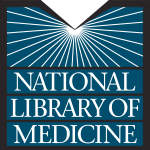- Industrie: Library & information science
- Number of terms: 152252
- Number of blossaries: 0
- Company Profile:
The National Library of Medicine (NLM), on the campus of the National Institutes of Health in Bethesda, Maryland, is the world's largest medical library. The Library collects materials and provides information and research services in all areas of biomedicine and health care.
Abnormal slowness of movement, which is often a symptom of neurological disorders, particularly Parkinson's disease.
Definition from: Unified Medical Language System (Psychological Index Terms) at the National Library of Medicine.
Industry:Medical
Either of the eighth pair of cranial nerves connecting the inner ear with the brain, transmitting impulses concerned with hearing and balance, and composed of the cochlear nerve and the vestibular nerve -- called also acoustic nerve, auditory, eighth cranial nerve, vestibulocochlear nerve.
Industry:Medical
1) A class of large neuroglial (macroglial) cells in the central nervous system - the largest and most numerous neuroglial cells in the brain and spinal cord. Astrocytes (from "star" cells) are irregularly shaped with many long processes, including those with "end feet" which form the glial (limiting) membrane and directly and indirectly contribute to the blood-brain barrier. They regulate the extracellular ionic and chemical environment, and "reactive astrocytes" (along with microglia) respond to injury.
2) A type of cell found in the brain and spinal cord. An astrocyte is a small, star-shaped glial cell (a cell that surrounds and supports nerve cells. )
Industry:Medical
Refers to any of the chromosomes other than the sex-determining chromosomes (i.e., the X and Y) or the genes on these chromosomes.
Industry:Medical
1) Persistent abnormal dilatation of the bronchi.
2) A chronic inflammatory or degenerative condition of one or more bronchi or bronchioles marked by dilatation and loss of elasticity of the walls.
Industry:Medical
1) The process by which cells digest parts of their own cytoplasm; allows for both recycling of macromolecular constituents under conditions of nutrient limitation and remodeling the intracellular structure for cell differentiation.
2) Digestion of cellular constituents by enzymes of the same cell.
Industry:Medical
1) Treatment of disease by the administration of substances which produce a biological reaction in the organism. It includes the use of sera, antitoxins, vaccines, cells, tissues, and organs. (From Dorland, 28th ed)
2) Treatment to stimulate or restore the ability of the immune system to fight infection and disease. Also used to lessen side effects that may be caused by some cancer treatments. Also known as immunotherapy, biotherapy, or biological response modifier (BRM) therapy.
Industry:Medical
